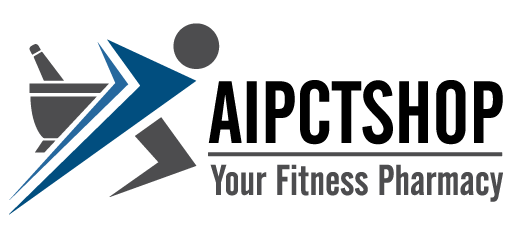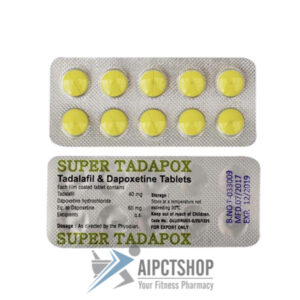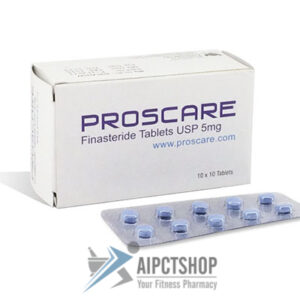Sertraline Information
Pronunciation
(SER tra leen)
What is this drug used for?
• It is used to treat low mood (depression)
• It is used to treat obsessive-compulsive problems.
• It is used to treat panic attacks.
• It is used to treat post-traumatic stress.
• It is used to treat mood problems caused by monthly periods.
• It is used to treat social anxiety problems.
• It may be given to you for other reasons. Talk with the doctor.
Frequently reported side effects of this drug
• Dizziness
• Fatigue
• Loss of strength and energy
• Nausea
• Vomiting
• Dry mouth
• Diarrhea
• Constipation
• Trouble sleeping
• Sweating a lot
• Tremors
• Abdominal pain
• Lack of appetite
Other side effects of this drug: Talk with your doctor right away if you have any of these signs of:
• Depression like thoughts of suicide, anxiety, emotional instability, agitation, irritability, panic attacks, mood changes, behavioral changes, or confusion
• Low sodium like headache, difficulty focusing, trouble with memory, confusion, weakness, seizures, or change in balance
• Serotonin syndrome like dizziness, severe headache, agitation, sensing things that seem real but are not, fast heartbeat, abnormal heartbeat, flushing, tremors, sweating a lot, change in balance, severe nausea, or severe diarrhea
• Bleeding like vomiting blood or vomit that looks like coffee grounds; coughing up blood; blood in the urine; black, red, or tarry stools; bleeding from the gums; abnormal vaginal bleeding; bruises without a reason or that get bigger; or any severe or persistent bleeding
• Stevens-Johnson syndrome/toxic epidermal necrolysis like red, swollen, blistered, or peeling skin (with or without fever); red or irritated eyes; or sores in mouth, throat, nose, or eyes
• Liver problems like dark urine, fatigue, lack of appetite, nausea, abdominal pain, light-colored stools, vomiting, or yellow skin.
• Abnormal heartbeat
• Fast heartbeat
• Passing out
• Vision changes
• Eye pain
• Eye edema
• Eye redness
• Seizures
• Leaking of urine
• Excessive weight gain or loss
• Decreased sex drive
• Sexual dysfunction
• Signs of a significant reaction like wheezing; chest tightness; fever; itching; bad cough; blue skin color; seizures; or swelling of face, lips, tongue, or throat.
Medication Safety Issues
Sound-alike/look-alike issues:
Sertraline may be confused with cetirizine, selegiline, Serevent, Soriatane
Zoloft may be confused with Zocor
Storage/Stability
Store at 20°C to 25°C (68°F to 77°F); excursions permitted to 15°C to 30°C (59°F to 86°F).
Adverse Reactions
>10%:
Central nervous system: Insomnia (20%), dizziness (12%), fatigue (12%), drowsiness (11%)
Gastrointestinal: Nausea (26%), diarrhea (20%), xerostomia (14%)
1% to 10%:
Cardiovascular: Palpitations (4%), edema (<2%), hypertension (<2%), syncope (<2%), tachycardia (<2%), vasodilation (<2%)
Central nervous system: Agitation (8%), malaise (≥5%), anxiety (children and adolescents: ≥2%), abnormal gait (<2%), ataxia (<2%), coma (<2%), confusion (<2%), euphoria (<2%), hallucination (<2%), hypertonia (<2%), hypoesthesia (<2%), impaired consciousness (<2%), irritability (<2%), lethargy (<2%), psychomotor agitation (<2%), seizure (<2%), yawning (<2%)
Dermatologic: Hyperhidrosis (7%), alopecia (<2%), bullous dermatitis (<2%), dermatitis (<2%), diaphoresis (<2%), erythematous rash (<2%), follicular rash (<2%), maculopapular rash (<2%), pruritus (<2%), urticaria (<2%)
Endocrine & metabolic: Decreased libido (4% to 7%), weight loss (>7% of body weight; children: 7%; adolescents: 2%), diabetes mellitus (<2%), galactorrhea (<2%), hypercholesterolemia (<2%), hypoglycemia (<2%), hypothyroidism (<2%)
Gastrointestinal: Dyspepsia (8%), decreased appetite (7%), constipation (6%), abdominal pain (≥5%), vomiting (4%), bruxism (<2%), hematochezia (<2%), increased appetite (<2%), melena (<2%)
Genitourinary: Ejaculation failure (8%), erectile dysfunction (4%), ejaculatory disorder (3%), urinary incontinence (≥2%), sexual disorder (males: 2%), hematuria (<2%), priapism (<2%), vaginal hemorrhage (<2%)
Hematologic & oncologic: Hemorrhage (<2%), rectal hemorrhage (<2%)
Hepatic: Increased liver enzymes (<2%)
Hypersensitivity: Anaphylaxis (<2%)
Neuromuscular & skeletal: Tremor (9%), hyperkinesia (children and adolescents: ≥2%), muscle spasm (<2%)
Ophthalmic: Visual disturbance (4%), blurred vision (<2%), mydriasis (<2%)
Otic: Tinnitus (<2%)
Respiratory: Bronchospasm (<2%)
Frequency not defined:
Central nervous system: Aggressive behavior
Hematologic & oncologic: Purpura
Neuromuscular & skeletal: Arthralgia, muscle twitching
Respiratory: Epistaxis
Miscellaneous: Fever
<1%, postmarketing, and/or case reports: Acute renal failure, agranulocytosis, angioedema, angle-closure glaucoma, aplastic anemia, atrial arrhythmia, atrioventricular block, blindness, bradycardia, cataract, cerebrovascular spasm (including Call-Fleming syndrome, reversible cerebral vasoconstriction syndrome), coagulation time increased (altered platelet function), diabetes mellitus, edema, extrapyramidal reaction (including akathisia, dystonia), gynecomastia, hepatic failure, hepatitis, hyperglycemia, hyperprolactinemia, hypersensitivity reaction, hypomania, hyponatremia, jaundice, leukopenia, lupus-like syndrome, mania, menstrual disease, neuroleptic malignant syndrome (Stevens 2008), nightmares, oculogyric crisis, optic neuritis, pancreatitis, pancytopenia, prolonged Q-T interval on ECG, psychosis, pulmonary hypertension, rhabdomyolysis, serotonin syndrome, serum sickness, SIADH, skin photosensitivity, Stevens-Johnson syndrome, thrombocytopenia, torsades de pointes, toxic epidermal necrolysis, trismus, vasculitis, ventricular tachycardia, withdrawal syndrome








